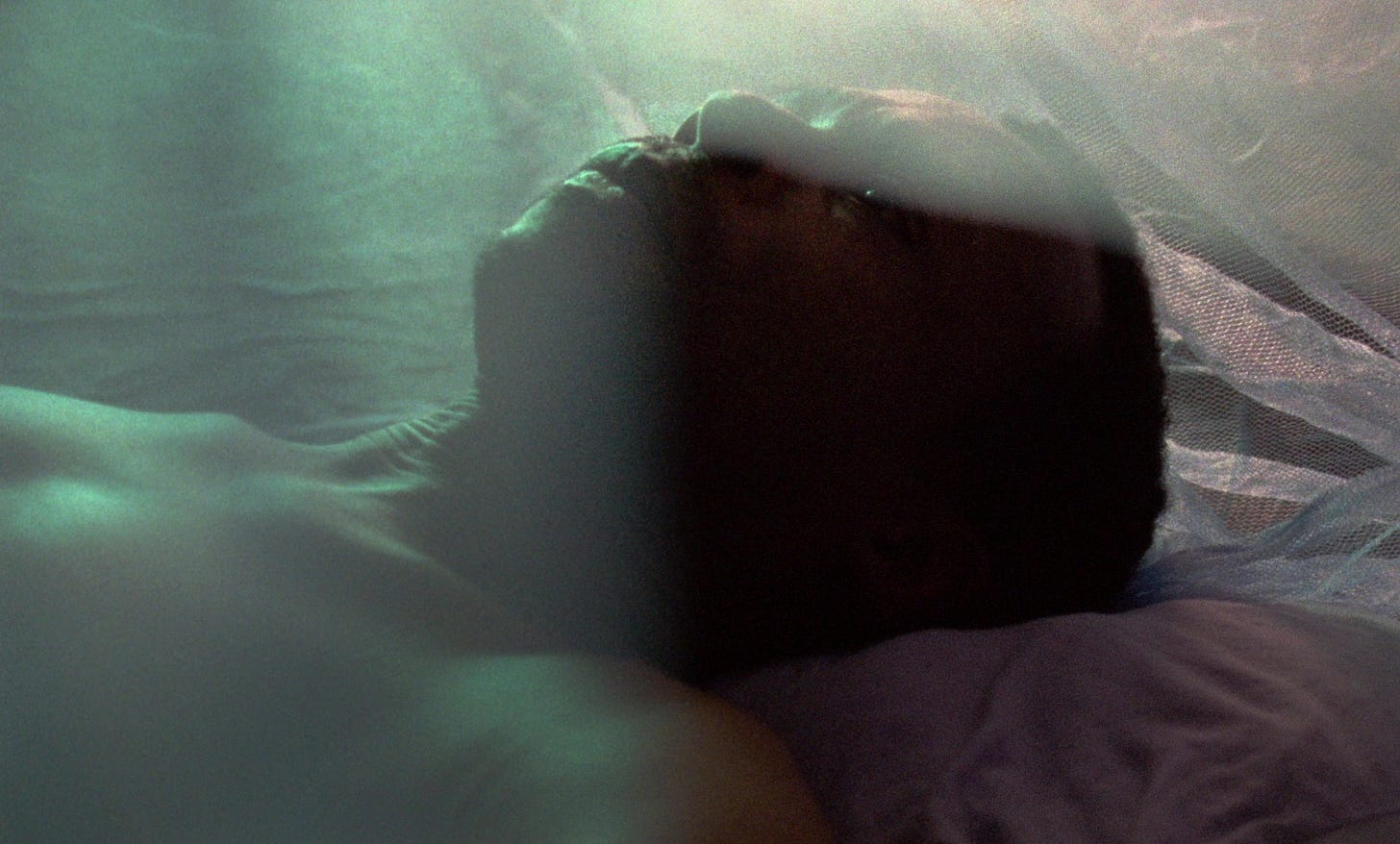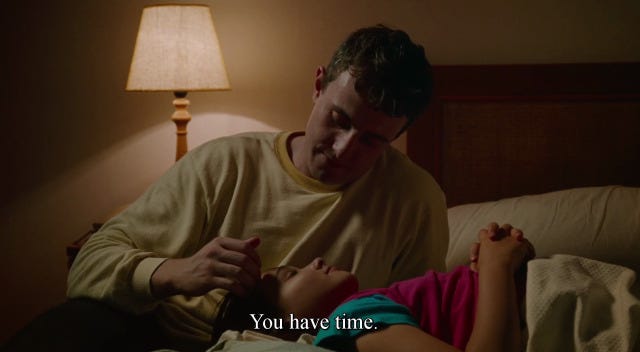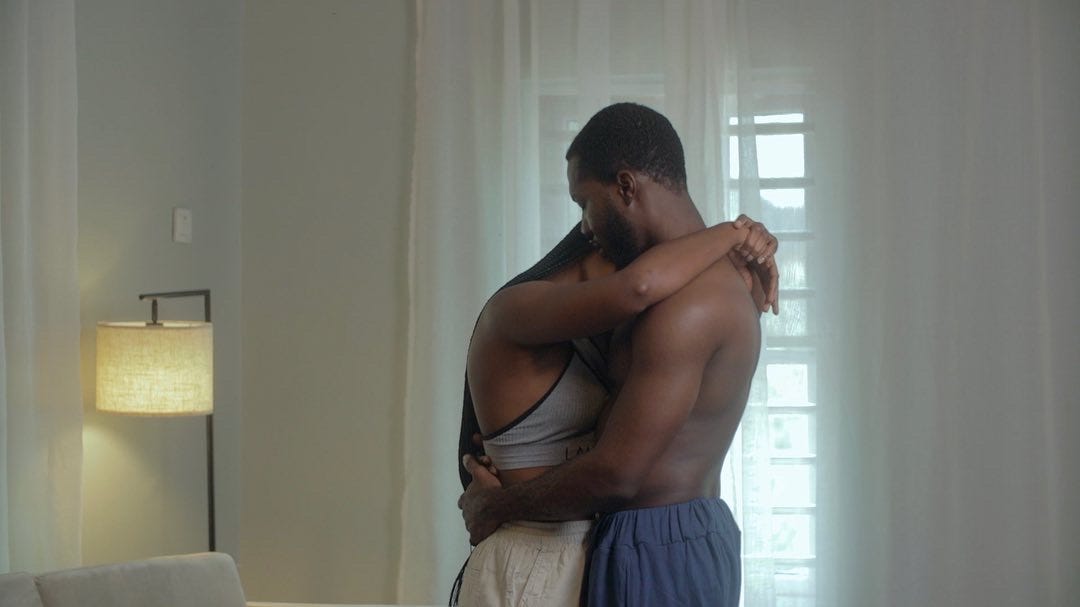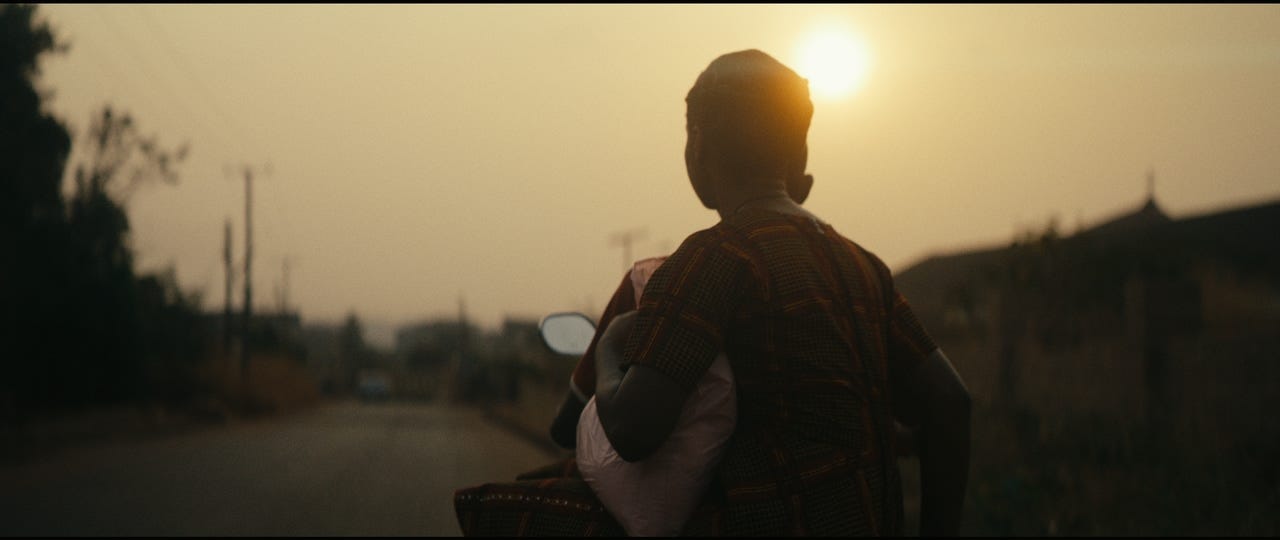So substack reminded me that it’s been more than three months since I last posted here and I thought it wouldn’t be bad to share a bit of myself and what’s kept me busy or rather away from writing here.
Truth is, while a few interesting things may have been happening in my life and keeping me involved, I can’t really say that it’s kept me too busy to write. I think I’m in this headspace where I’m more interested in writing and fleshing out my stories and developing them than writing film essays or interviewing people. There aren’t too many things I love more than conversations but I guess I needed the break. And I’ve also been writing elsewhere if I am to speak honestly. My most recent pieces are on The Continent, Native, and OkayAfrica.
I’ll resume writing essays and publishing interviews here soon but I thought to reflect and share a bit about myself and my journey to filmmaking as I turn 24 today.
I’ve always wanted to make films. I spent most of my childhood playtime reenacting my favourite films. I would gather my cousins and friends in our sitting room, assign them characters from the film we had just seen, and scene by scene we would reenact the entire film. Sometimes it would just be the scenes that had stood out or had some dramatic flair to them. And I remember that I would get upset if my cousins/friends didn’t remember their character lines and quarrel when I felt they were not taking their roles serious enough. At the time, I didn’t know I was nurturing myself into the storyteller, film director that I would become today.
By secondary school, I was writing plays for my school and directing them. I was also writing short stories in notebooks that I had designated just for them. And when my friends visit, my way of entertaining them was to present them these notebooks. I had a friend who had gone home with one of the notebooks once and when he returned them, he told me that I didn’t write them. He had given it to his older brother who read and told him that it was impossible that I wrote them. That the stories were too good to have been written by me. Rather than get upset and try to defend and prove that I had not copied some published author, I felt a sense of validation; what was important was that they thought the story was good. That he believed I couldn’t have written them meant that the writing was on par with other books he had read. It didn’t even occur to me to consider that I had just been insulted.
This was around the time that I was reading more fiction and discovering African authors beyond Chinua Achebe and voraciously consuming the Macmillan Pacesetter series, from that point up until the end of secondary school and my years in University, the literary world seemed like the path for me. I had also started to make friends with literary writers. We read each other’s works and gave feedback. I always thought all of them to be brilliant writers and their stories better written than mine and so when they read me and came back to say that it was brilliant and or beautiful, I felt accomplished.
But within me, I knew film was the stronger desire. When I read novels, I imagined them as films and thought of the actors I would cast to play each character. And at some point, I imagined that I would combine both. Write my short stories and novels and visualize them later on into films. I didn't know how but I was convinced that I would figure out a way eventually.
For Uni, I applied for law but I eventually ended up studying history and international studies. I wanted to become many things in Uni. But the one dream i fervently pursued was radio presenting. And through my family’s influence, I got a job at a radio station in Enugu towards my final years in Uni.
I didn't find my work on radio as fulfilling as I assumed it would be. But I was diligent and resourceful and that endeared me to senior colleagues at the station. While I do not miss it, I'm grateful for my time there. I got to present a movie highlight show and a music countdown show. Came NYSC and the Covid-19 pandemic and I had to quit my job at the radio station. Stuck at home and bored, I started to write film essays for Nigerian magazines and blogs. I've never felt more like a journalist than when after seeing Okechukwu Oku’s Black Rose on Netflix, I sought him out and went to his studio to interview him for Bella Naija. A culture journalist who had consistently read some of my articles reached out to me and told me I could make good money if I pitched my articles to international magazines and sent me the email addresses of a few editors. I'm grateful for the kindness and the ways it opened up new possibilities for me.
But I knew culture journalism wasn't something I was going to chase full-time. One of my year 2021 resolutions was to learn screenwriting and I started the year writing my first script (a later version of that story became A Japa Tale) and reading Foundations of Screenplay by Syd Field. By February, I was on a hike trip with my friend Ugo and we talked a lot about our hobbies and career goals. We shared a common interest in films. I liked the sort of films he liked and he liked the kind of films I liked to watch. When he learnt filmmaking was my one true passion, he asked what I was doing about it and I told him I was already learning screenwriting, so he said, let’s make a film.
We met a lot a few days after that deciding on the story we wanted to tell, the themes to explore, and writing and rewriting the script. When we settled on the script. We had to cast. I looked everywhere for our actors. Because our lead was a young girl of about 12, it was so difficult to find the right actor. I would walk up to people in malls and ask them if they knew anyone of that age who could act and was willing to be in a film. Many looked at me like a mad man. I eventually found a young girl who looked the part through a former colleague at the radio station. I also cast one of my favourite presenters at the station for the mother role. But the work didn’t end there.
We were precise about how we wanted the film to look and made efforts to see to it. Me and Ugo would meet at a corner on my street every other day practicing our shots, the blocking and camera movement. It was exhilarating. Ugo already knew the workings of a camera; photography was one of his hobbies and he had owned a few camera for years. However, we shot the film on his smartphone to make it eligible for smartphone film festivals. But we never submitted to the festival.
True story, when we met a day after we had shot to go through what we had done, I cried looking at the rushes. I hated it. All I could see were the errors and mistakes. We were in a restaurant watching it and I started to cry. No shame.
I think Ugo said a few words of comfort and we considered reshooting it for a second. But he also thought it was salvageable and he went ahead to edit the film. By the time he was done and I watched it again, I could still see the errors but I had gotten over myself and decided to be kind to myself and to Ugo and to the actors. It was a first time for almost all of us. We were learning on the job and it was fitting that there’d be mistakes. We had not gone to a film school nor spent years consciously studying filmmaking. We had woken up one day and decided to make a film and was now seeing it through. That was applaudable. The film was a reflection of our current skills and talents and I needed to own it.
When we put out Soma on YouTube and announced it on Twitter and Instagram, I was blown away by the reception. I got DMs saying well done, I enjoyed it, it was good. I was resistant to the commendations because I thought they were patronizing. I felt people liked it because it was good enough for someone who was trying out filmmaking for the first time, not because it was essentially good. It took making other films to realise I was wrong. I’ve looked at it with better eyes today and I now know that I judged myself too harshly.
After Soma, film school was the next goal. I needed to train. I needed to be better. Yes, I was still studying and reading a lot about filmmaking but I thought I needed a community of young filmmakers like myself to learn more and grow. I applied to this one film school, scaled through the various stages of the admission process. Then nothing. Never got an acceptance email. Not even a rejection one. But yeah, I didn’t make the list. It crushed me. I cried. I was depressed for a few weeks. I discovered the goodness of Toblerone again and consumed an unwholesome amount in those weeks. But the actual comfort came when me and Ugo resolved to make another film and I started scripting again.
Because I talked about film a lot on my Twitter and Instagram, it attracted both love and hate from filmmakers in the industry. One day I spoke honestly about how I felt about Soma on my Instagram story and one of my favourite Nollywood filmmakers DMed and told me well done and to keep pushing. I told her thank you and promised that I will keep pushing. This was how we started to converse often in the DMs. We spoke a lot about films both Nollywood and non-Nollywood and even about her films. Through our conversations, I found her honest about her films and the state of the industry and saw that they had a good understanding of storytelling. I liked that. One day, she asks me to recommend a scriptwriter for her and I mention a few names. But then she asks for my number. She calls me. shares a pitch deck with me and says she wants me to co-write a film with her. I was excited but I didn’t understand it.
That was in January of 2022. The only thing I had done in film was Soma, yet they trusted that I was good enough to write a feature script with them. They later saw Soma and had only praise for the film.
I think The Way Things Happen is the best thing I’ve written yet. I loved the script. I remember breaking down and really crying after I completed one of the drafts. It’s the most personal story I’ve ever written. The film concerns a young woman who grieves and comes to terms with her lovers demise. I was grieving at the time after having lost three loved ones in quick successions, in the space of six months. Many days I was fatigued. Many days I was unable to breathe. Some days were filled with nothingness. I screamed. I cried. I wailed. Then anxiety and panic attacks. I would wake up from nightmares and be scared shitless to go back to sleep. I became acutely aware of my mortality and I thought of my dreams and how I was yet to accomplish them. How unremarkable my life would read if I died. It was a moment of suffering for me and made worse by attempts to mask my pain. There were days I considered drugs for relief. Thankfully, I stuck to cigarettes and wine and spirits. Here’s what I logged in on my notes app just about a year ago:
Today, each time I watch The Way Things Happen, it reminds me of that period in my life and I am glad that I pulled through. I can’t say I have completely healed but I am better off than I was yesterday. And it’s something I am thankful for.
A Japa Tale was a slight departure from the contemplative tone and mood of The Way Things Happen. I was trying to explore breakups and didn’t want it bothering with it infidelity and it’s melodramatic demands. I was looking to explore amicable breakups. A relationship that had to end despite the couple’s love for each other. When writing it, I wrote the dialogue first. It felt like I was in the room with the characters and all that was coming to me was the words they spat at each other.
A thematic consideration was of course, the Japa wave and how it disrupts relationship. I may not have lost a lover to japa, but I have lost too many family members and friends to it and the film was a way for me to also express and contemplate my hurt.
From the S16 Festival screening, A Japa Tale brought with it a lot of praise and commendation in ways I didn't expect. It was my first time solo directing and my technical deficiencies were apparent in the ways it wasn't in The Way Things Happen as it's an area Ugo is more proficient. But I appreciate going on the journey alone because it was an important learning curve for me and set me ready for A Quiet Monday.
A Quiet Monday is certainly the most challenging film I made. Blessing Uzzi, who is the film’s producer, and I had started discussing the film as early as September of 2022. We had decided to shoot in October even. But plans fell through. And it eventually got shot in the second week of January 2023.
I'm going to share the many stories of the making of A Quiet Monday on another day. I've grown and learnt a lot about filmmaking while working on it. There are days I watch and I think it's the most beautiful thing I've created and days when I am haunted by the many ways I could have done things better. But ultimately, I'm immensely proud of the film.
I like that I got to speak on a matter close to my heart and looking forward to sharing it with you all.
After A Quiet Monday, Ugo and I got together and made Nkemakonam. It was going to be a much bigger film but we had a change mind when we were ready for production and thought to keep the budget at the most minimal, committing to Ugo’s desire of filmmaking remaining a hobby for him. It was guerilla filmmaking once again but I loved the entire process.
This is the farthest my filmmaking story can go for now. Or rather it's the most I can share. I'm working on stuff. Developing stuff. Writing stuff. Preparing to direct stuff. I am chasing my dreams.
I want to make great films. I am committed towards that goal and I am willing to do whatever it would take to see it happen. Is it a lofty ambition? I don't care. Is it achievable? Yes. Do I have what it takes? Yes. I know that I am talented and that if I keep the passion burning and keep learning about filmmaking and exerting myself towards growth, I shall accomplish my goal.
I believe in the powers of storytelling and I feel most fulfilled when people see my films and tell me how it moved them. How familiar the characters were. How they cried. How the messaging resonated with them.My 24th prayer is that I keep doing that. My 24th prayer is to keep telling stories that move people.
Nine days to today someone on Twitter sent me the most lovely message that moved me and brought me near tears.
Amen.
Happy Birthday, Dika. Your dreams will come true.











I hope you write more often on here.❤️
ALL YOUR DREAMS WILL COME TRUE !